Climate Migration Workshop: Preparing Receiving Communities
Bringing together researchers, stakeholders, rights holders and practitioners to predict and prepare for climate in-migration.
We know climate migration will intensify as climate impacts worsen. But who will migrate? Where will those migrants go? And how will that migration affect people and livelihoods in both leaving communities and receiving communities? American Society of Adaptation Professionals and our collaborators explore findings on these questions and consider how those findings can help receiving communities plan for socially just and environmentally responsible growth.
What to expect from this workshop?
- See presentations from climate and demography experts about methodologies for predicting climate migration
- Hear perspectives and needs of stakeholders and rightsholders in potential climate-receiving communities in the Great Lakes region
- Observe thought-provoking discussions that center environmental justice and affected communities in climate in-migration planning
- Listen to conversations between experts, peers, and potential collaborators that will help you consider how to integrate climate migration into decision making

Day 1 | Tuesday December 7th | 12:00-3:00p.m. ET
In-Migration Methodologies and Understanding Climate Receiving Regions
During this session you will hear about the climate in-migration methodologies developed through the New York State Climate Migration Methodology Accelerator, learn about potential migration into and out of the Great Lakes region and throughout New York State, and have an opportunity to network with other participants and experts in the field.
Integrating projections of future extreme/displacement-level events into an existing age-segmented, county-level migration model for the Great Lakes region.
- Matt Hauer: Assistant Professor of Sociology, Florida State University
- Kim Channell: Climatologist, Great Lakes Integrated Sciences and Assessments
- BJ Baule: Graduate Research Assistant, Great Lakes Integrated Sciences and Assessments
Moderated by Alex de Sherbinin, Associate Director for Science Applications & Senior Research Scientist, Center for International Earth Science Information Network (CIESIN), Earth Institute, Columbia Climate School
- Isaac Gendler: Utilities Engineer, California Public Utilities Commission
- Ross Plattel: Urban Technology Researcher, University of Calgary, and The Southern Alberta Institute of Technology
Pushed, Pulled, or Stranded? Invisible Housing Immobility in the Climate Migration Conversation
- Kelly Main: Executive Director, Buy-In Community Planning
- Osamu Kumasaka: Community Action Director, Buy-In Community Planning
Moderated by Rachel Jacobson: Deputy Director, American Society of Adaptation Professionals
Perspectives, challenges and data needs for climate in-migration in the Great Lakes Region
- Susan S. Ekoh: Adaptation Fellow, American Society of Adaptation Professionals

Kim Channell, Climatologist, Great Lakes Integrated Sciences and Assessments
Kim Channell is a Climatologist with the Great Lakes Integrated Sciences and Assessments (GLISA) team at the University of Michigan. In this role, she supports various GLISA projects and products tailoring climate information to meet the needs of their partners and stakeholders throughout the Great Lakes region. Her work includes facilitating scenario planning with practitioners and communities, developing regional climate summary products, and collaborating with cities to incorporate climate information into their municipal planning and decision-making. She holds a Master's in Applied Climate from the University of Michigan's College of Engineering.
 BJ Baule, Graduate Research Assistant, Great Lakes Integrated Sciences and Assessments
BJ Baule, Graduate Research Assistant, Great Lakes Integrated Sciences and Assessments
B.J. researches the interactions between heavy precipitation events in the Midwestern United States and nitrogen movement in managed agricultural ecosystems. In addition, he participates in projects on agricultural applications of weather data in Michigan for fruit growers, human-health impacts associated with climate change/variability, and works with a variety of federal, tribal, state, and local partners to incorporate climate information into planning processes.

Ross Plattel, Urban Technology Researcher, University of Calgary and The Southern Alberta Institute of Technology
Ross is an urban/civic technologist with a future minded focus. He works with the University of Calgary as part of the academic research and discussion group on Smart Cities, while also acting as support for virtually delivered courses. With The Southern Alberta Institute of Technology (SAIT) he works on the development, testing, and deployment of SAIT's first micro-credentials, and acts as tech support and TA for short term digital solutioning innovation programs. Outside of work, Ross volunteers as one of the Co-Leads for CivicTechYYC, organizing events monthly for the group of volunteers who work together on volunteer urban-related technology projects. His research on the impacts of climate-induced human migration has been inspired by his passion for the environment and connection with nature, along with his desire to improve the lived human experience.

Kelly Leilani Main, Executive Director & Co-founder, Buy-In Community Planning
Kelly Leilani Main is the Executive Director and co-founder of Buy-In Community Planning, an organization providing equitable and accessible relocation services for communities on the frontlines of irreversible climate impacts. Kelly has worked as a planner, designer, and geospatial analyst at the intersection of climate adaptation planning and rights-driven relocation policy in contexts diverse as the Philippines, Turkey, Ghana, Uganda, Peru, Nepal, Lebanon, Palestine, and the US. Kelly has a Masters in City Planning from the MIT Department of Urban Studies and Planning and is currently a PhD student of Landscape Architecture and Environmental Planning at UC Berkeley.
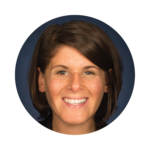
Rachel Jacobson, Deputy Director, American Society of Adaptation Professionals
Rachel Jacobson leads the development, implementation and continuous improvement of ASAP's programs. She facilitates peer learning through our Mentorship Program, advances effective adaptation practice by stewarding our professional guidance resources, and builds field cohesion by convening the Member Advisory Group on Professional Education and Regional Adaptation Forum Organizers. Internally, Rachel lead's ASAP's monitoring and evaluation efforts and ensures new activities align with member values and ASAP strategic priorities. Contact Rachel to learn about member programs, discuss ASAP strategic priorities, and brainstorm ways to leverage the ASAP Network to advance the adaptation field. Rachel holds B.A., M.P.P, and M.S. degrees from the University of Michigan, and a Certificate in Environmental Law and Regulation from the University of Washington.
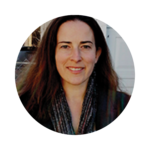 Beth Gibbons, Executive Director, ASAP
Beth Gibbons, Executive Director, ASAP
Beth brings expertise with ASAP’s mission, its growing network of members and collaborators, and trends and opportunities to grow and strengthen the adaptation field. Beth is excited to help you paint a vision of the future for your firm, and identify concrete steps to stay on the leading edge of climate adaptation and resilience practice.

Matt Hauer, Assistant Professor of Sociology, Florida State University, Faculty Affiliate, Center for Demography and Population Health
Matt Hauer is an Assistant Professor of Sociology at Florida State University and a faculty affiliate in the Center for Demography and Population Health. Matt’s expertise is at the intersection of demography, migration, population projections, and climate change. His recent review article on Sea Level Rise and Human Migration describes one of the most costly and permanent consequences of climate change. More than 270 media outlets have covered Matt’s research including Time Magazine, the New York Times, the Guardian, the Washington Post, and National Geographic. His publications appear in a diverse set of journals including Nature Climate Change, Demography, Environmental Research Letters, Demographic Research, Population and Environment, Statistical Modelling, and Population Research and Policy Review, among others.

Alex de Sherbinin, Associate Director for Science Applications & Senior Research Scientist, Center for International Earth Science Information Network (CIESIN), Earth Institute, Columbia Climate School
Alex de Sherbinin is the Associate Director for Science Applications and a Senior Research Scientist at the Center for International Earth Science Information Network (CIESIN) at the Columbia Climate School and its Earth Institute. Dr. de Sherbinin has written on a range of topics, including climate vulnerability mapping; climate change and migration; and urban climate vulnerability and resilience. He holds a PhD in Geo-Information Science and Earth Observation from ITC at the University of Twente (Netherlands), and MA and BA degrees in geography from Syracuse University and Dartmouth College, respectively.

Issac Gendler, Climate Adaptation/Housing Policy Researcher, California Public Utilities Commission
Isaac Gendler works by day as a Utilities Engineer for the California Public Utilities Commission and by night as a Housing Policy - Climate Adaptation Researcher. This interest in Climate Migration was spurred by witnessing the effects of the 2018 Paradise Fire while living in the San Francisco Bay Area. Isaac has served as the Lead Quantitative Analyst for the Post COVID Pull Factor Methodologies project. Some of Isaac's past research includes the impact of the Bay Area housing crisis on regional wildfire hazard, Los Angeles housing policy, and the effects of cascading electricity failures on interdependent infrastructure systems. Isaac has strong family connections to New York State and is proud to serve its residents.

Osamu Kumasaka, Community Action Director, Buy-In Community Planning
Osamu Kumasaka is program director and co-founder of Buy-In Community Planning. Osamu has worked as a planner, project manager, and social science researcher with frontline communities and Tribes across the United State. Osamu currently works as a Tribal Climate Change Program and Policy Specialist in the California Dept. of Public Health’s Office of Health Equity. Prior to these roles, Osamu supported and facilitated participatory public processes on behalf of cities, state agencies, and conservation nonprofits in the Northeastern U.S. as a junior associate at the Consensus Building Institute. Osamu is a Master’s in City Planning candidate at MIT DUSP and holds a BA in Environmental Studies from Lewis & Clark College. He is a licensed mediator and experienced group facilitator trained at Harvard Law School’s Program on Negotiation. Osamu has presented his work and research on climate adaptation and sustainable development to the United Nations Systems Staff College, at the 2018 Georgetown Climate Center Workshop on Managed Retreat, and at the 2021 UCLA Luskin Climate Adaptation Research Symposium.

Susan S. Ekoh, Adaptation Fellow, American Society of Adaptation Professionals
Susan leads ASAP’s work preparing Great Lakes communities to receive climate migrations. She designs and facilitates conversations with stakeholders and indigenous rightsholders, supports the development of methodologies to predict and plan for climate migration, and works with a variety of partners within and adjacent to the ASAP network to share findings and implications for in-migration planning in the Great Lakes and other potential climate-receiving regions. She holds a PhD in Environmental Policy from SUNY ESF.
Day 2 | Wednesday December 8th | 12:00-3:00p.m. ET
Supporting Effective In-Migration Planning
During these sessions, you’ll hear directly from practitioners, government staff, community leaders, business leaders, and researchers. You’ll learn about how climate in-migration is, and will be, influencing infrastructure, housing, and labor needs. You’ll come away being able to:
- Identify ways to approach unresolved questions that have come up in climate migration research and practice.
- Articulate the importance of centering affected communities in discussions about climate migration.
- Describe important considerations for integrating in-migration information into decision-making.
Housing Needs to Support Climate In-Migration Panel
- Ron Harris, Chief Resilience Officer, City of Minneapolis
- Laurie Schoeman, National Director, Resilience & Disaster Recovery, Enterprise Community Partners
- Lauren Wang, Senior Policy Advisor, NYC Mayor's Office of Climate Resiliency
- Moderator: Osamu Kumasaka, Community Action Director, Buy-In Community Planning
Infrastructure Needs to Support Climate In-Migration Panel
- Missy Stults, Sustainability and Innovations Manager, City of Ann Arbor
- Kathy Bunting-Howarth, Associate Director, New York Sea Grant
- Richard Ackerman, Director of Climate Equity, Detroit Eastside Community Network
- Moderator: Bill Schleizer, CEO, Delta Institute
Labor Perspectives Panel
- Megan Dayton, Senior Demographer, Minnesota State Demographic Center
- Brian Pathum, Economist, Southeast Michigan Council of Governments
- Marty Gerencer, Executive Director, West Michigan Food Processing Association
- Moderator: Rachel Peric, Executive Director, Welcome America
Housing Perspectives

Ron Harris, Chief Resilience Officer, City of Minneapolis
Ron Harris is the Chief Resilience Officer for the City of Minneapolis where he leads the development and implementation of the City's resilience strategy with a key emphasis on racial equity, economic inclusion, and climate change adaptation. Prior to this role, he served as the Senior Advisor to the City Council President where he was instrumental in researching and negotiating public policy including the city's first municipal minimum wage increase, it's innovative plan for economic growth, and upstream efforts to reduce violence in community. His career has been dedicated to social justice through the lenses of civic engagement, electoral politics, public private partnership, and philanthropy. In addition, Ron is a sought after public speaker focused on creating inspiring experiences and sparking personal and professional transformation.
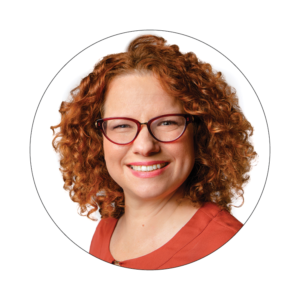
Laurie Schoeman, National Director, Resilience and Disaster Recovery
Laurie is a deeply committed climate risk reduction leader. Laurie has led leading edge policy packages including passage of the nation’s first utility-sponsored environmental justice "do no harm" mandate and climate adaptation policies with agencies and utilities in New York. She currently chair’s the New York State Adaptation Task Force for Buildings and advises a range of agencies/organizations on housing resilience, adaptation and mitigation including the Federal Emergency Management Agency (FEMA), International Code Council (ICC), Fannie Mae, US Department of Energy (USDOE) and US Department of Housing Urban Development (HUD).

Lauren E. Wang, Senior Policy Advisor, New York City Mayor’s Office of Climate Resiliency
Lauren E. Wang is a Senior Policy Advisor at the New York City Mayor’s Office of Climate Resiliency. She advises climate policy and programs on housing mobility, land use, and equitable adaptation planning. She has collaborated with partners in the public, private, and non-profit sectors to design and deliver hurricane recovery and climate adaptation services to homeowners and renters across New York City and developed multiple long-term plans. Ms. Wang holds a Masters in City and Regional Planning from UNC Chapel Hill and a Bachelor of Arts in Psychology from Princeton University.
Infrastructure Perspectives

Bill Schleizer, CEO, Delta Institute
Bill serves as CEO at Delta Institute, where he drives organizational strategy, development, and engagement in support of the nonprofit’s mission to collaborate with communities across the Midwest to solve complex environmental challenges – currently focused on Nature-Based Climate Solutions, Resilient Agriculture, and Sustainability & Support Services. He has over 20 years of experience in systems and policy analysis, environmental science, ecosystems and consulting. He earned his bachelor’s degree in Ecology, Evolution, and Organismal Biology and Environmental Studies from Tulane University and his master’s degree in Environmental Analysis and Decision Making from Rice University. Bill was also acknowledged by Crain’s Chicago Business as a notable LGBTQ+ Executive.
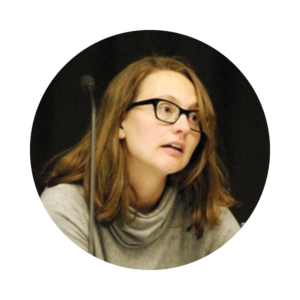
Missy Stults, Sustainability and Innovations Manager, City of Ann Arbor
Dr. Missy Stults is the Sustainability and Innovations Manager for the City of Ann Arbor. She works with city operations, residents, businesses, the University of Michigan, and nonprofits to make Ann Arbor one of the most sustainable and equitable cities in America and to implement the A2ZERO Carbon Neutrality Plan. Previously, Missy was the Climate Director at ICLEI-Local Governments for Sustainability. Missy has a PhD in urban resilience from the University of Michigan, a Masters in Climate and Society from Columbia University, and undergraduate degrees in Marine Biology and Environmental Science from the University of New England.
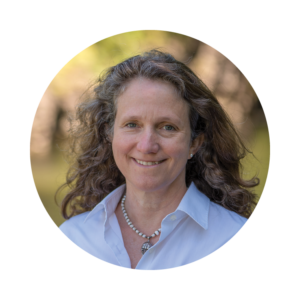
Kathy Bunting-Howarth, Associate Director, New York Sea Grant
Katherine (Kathy) Bunting-Howarth is the Associate Director of New York Sea Grant and Assistant Director of Cornell Cooperative Extension. Bunting-Howarth serves on multiple boards and committees including the Mid-Atlantic Regional Association Coastal Ocean Observing System (MARACOOS), Executive Council of the Science and Resilience Institute at Jamaica Bay, New York Water Resource Institute, Great Lakes Basin Advisory Council, Cornell Biological Field Station and the Chesapeake Bay Program Science and Technical Advisory Committee. She enjoys working with diverse groups of people to address complex concerns - from changing lake ecosystems to climate adaptation.

Ricky Ackerman, Sustainability and Innovations Manager, City of Ann Arbor
Ricky serves as the Director of Climate Equity for Eastside Community Network, a community development organization focused on the eastside of Detroit. While at ECN, Ricky has worked to engage residents around green stormwater infrastructure, air quality issues, resilience hubs, and other climate change-related topics. Prior to starting at ECN, he received his masters in Environmental Policy from the University of Michigan's School of Natural Resources and Environment. He began his career as a Peace Corps Volunteer in Ecuador where he spent three years working on a range of sustainability projects.
Labor Perspectives

Megan Dayton, Senior Demographer, Minnesota State Demographic Center
Megan Dayton is a Senior Demographer at Minnesota’s State Demographic Center. She is responsible for preparing demographic projections for the State of Minnesota, 13 Economic Development Regions, and 87 counties. Serving in this role, Megan is Minnesota's state representative to the Federal-State Cooperative Program for Population Projections (FSCPP) with the U.S. Census Bureau. Megan has hands-on knowledge of social and economic realities brought about by recent demographic shifts. Megan holds a master's degree in applied demography from the Center for Demography and Population Health at the Florida State University.
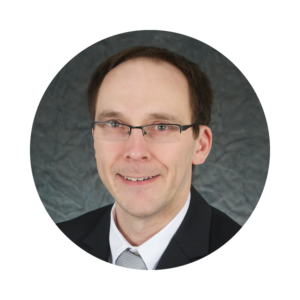
Brian Parthum, Economist, Southeast Michigan Council of Governments
Brian Parthum is an Economist with SEMCOG who has studied the Southeast Michigan economy for the last 20 years, primarily focusing on the region’s employment, labor force, and property tax base. He has a bachelor’s degree in Urban and Regional Planning from Michigan State University and a master’s degree in Applied Economics from Eastern Michigan University.
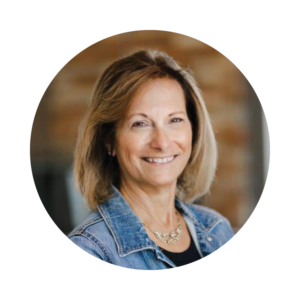
Marty Gerencer, Executive Director, West Michigan Food Processing Association
Marty is the Executive Director of the West Michigan Food Processing Association (WMFPA). WMFPA supports the west Michigan food industry to progress on six pillar strategies; economic development education, incubation, logistics, healthy food processing, and sustainable practices. Marty is also principal of Morse Marketing Connections, LLC (MMC), where she works with food companies and organizations connecting them to resources in healthy food and sustainable practices. Prior to the launch of MMC, Marty spent over 20 years with Gerber Products Company and worked with cross-functional teams to implement collaborative approaches to business practices.
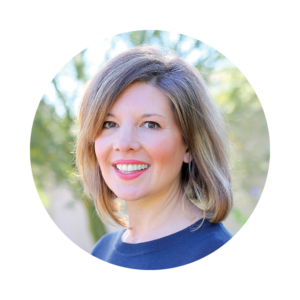
Rachel Perić, Executive Director, Welcoming America
Rachel Perić is Executive Director of Welcoming America. Inspired by her family’s refugee story and by the worldwide movement of welcomers, Rachel works to create communities where all residents – including immigrants and refugees – can thrive and belong. She has served as the organization’s deputy director and in other senior leadership roles, helping to grow Welcoming America from a startup to an award-winning organization with a global footprint. Rachel holds a Bachelor of Arts in international studies from Johns Hopkins University and a Master's in Public Management from the University of Maryland.
Our Partners
This workshop is in connection and collaboration with a robust group of adaptation professionals, applied researchers, and end users, including demographers, climatologists, local, state, and tribal government officials, and industry representatives.
Thank you to our collaborators!
- Matt Hauer, Florida State University
- Missy Stults, City of Ann Arbor
- Anna Marandi, National League of Cities
- Great Lakes Integrated Sciences and Assessments
- ASAP Climate Migration and Managed Retreat Member Led Interest Group
Thank you to our supporters!

New York State Energy Research and Development Authority
NYSERDA works with stakeholders throughout New York including residents, business owners, developers, community leaders, local government officials, university researchers, utility representatives, investors, and entrepreneurs. NYSERDA partners with them to develop, invest, and foster the conditions that attract the private sector capital investment needed to expand New York’s clean energy economy, overcome barriers to using clean energy at a large-scale in New York, and enable New York’s communities and residents to benefit from energy efficiency and renewable energy.
Great Lakes Integrated Sciences and Assessments, a NOAA RISA Team
GLISA is one of eleven RISAs, which comprise a national network of centers focused on adaptation to climate change and variability. GLISA integrates information from a wide array of scientific fields, develops collaborations between entities with similar goals, and helps inform decision makers throughout the region with sound science. GLISA offers a unique approach to building climate literacy, long-term sustainability, and facilitating smart decision making across the eight Great Lakes states and the province of Ontario.

